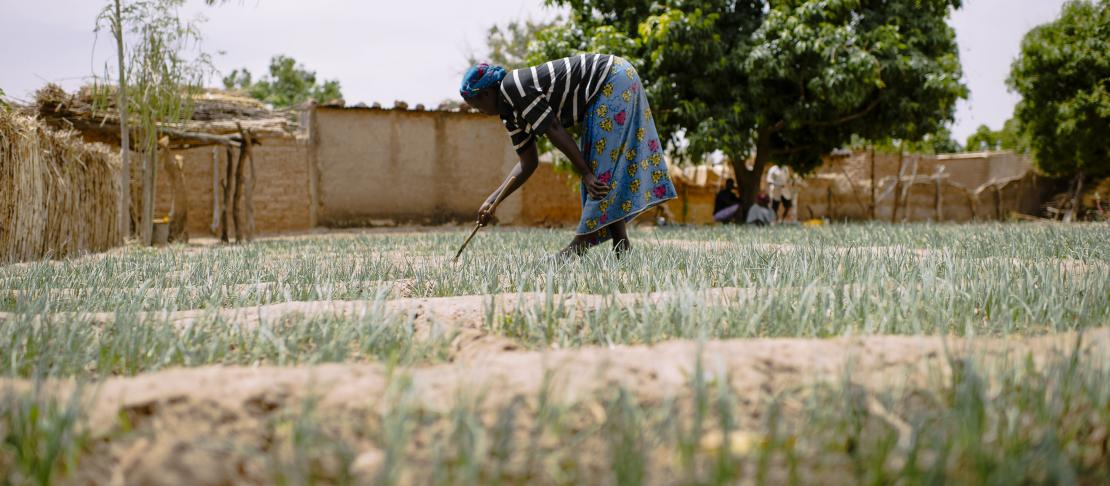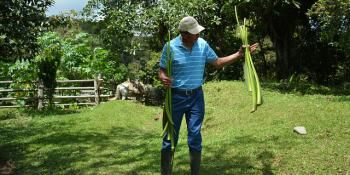How to better support women wanting to adopt climate-smart agriculture practices?

At a recently held workshop new findings related to gender roles and responsibilities among farmers were discussed and disclosed.
The recent changes in climate is also changing gender roles among farmers, says Marther Ngigi, who was presenting preliminary findings from her PhD thesis at a gender workshop in Nairobi, Kenya a few weeks back. The workshop was organised by the International Food Policy Research Institute (IFPRI) and the CGIAR Research Program on Climate Change, Agriculture and Food Security (CCAFS).
Ngigi investigated the adaptive capacity for both the husband and wife (wives) in one household and their preferred climate-smart agricultural practices. She conducted this study in three different three agro-ecological regions in Kenya together with International Food Policy Research Institute (IFPRI) and Kenya Agricultural Research Institute (KARI) The data collection involved individual- and intra-household level data, where husbands and wives were interviewed separately.
The study in addition reveals that men and women have different adaptive capacities to climate change:
"Husbands have more access to extension agents, access to information on climate change, have higher control over assets and decision making and higher social capital index" says Ngigi.
Group based approaches are important instruments in adaptation to climate-smart agricultural practices because they facilitate dissemination of information needed to manage climate change risks and support climate adaptation decisions. She further adds women are more vulnerable to climate change, as they have limited livelihood assets to allow them to adapt however, the study show that they are key actors in uptake of climate-smart agricultural practices.
Get Ngigi's presentation:
Her study also revealed that “adaptation to climate change is closely intertwined with wives’ and husbands’ roles and responsibilities in the household. Wives focus more on strategies related to crop production such as change in crop variety and type because of their traditional role of food provision, while husbands on the other hand focus more on strategies related to livestock production and agroforestry.”
The study findings indicate that gender roles in the household are changing due to climate change.
“It is the traditional women’s role to collect water and feed livestock held in the household, however, during water scarcity because of extreme droughts, men take the responsibility of fetching water and fodder from distant sources,” says Ngigi
The study suggests that in order to support women wanting to adopt and test climate-smart agriculture practices, there is a need for empowering women’s bargaining and decision-making power. There is also a need for scaling up group-based approaches to test and evaluate climate-smart agriculture practices. These remedies that can help support men wanting to adapt climate-smart agricultural practices.
Gender-inclusive and differentiated pro-poor policies in agricultural development are important in order to implement timely and long-term strategies that improve men’s and women’s welfare in the face of a rapidly changing climate.
- View photos from the event on our Flickr
- Read addtional stories on gender, agriculture and food security research.
Marther Ngigi is a PhD student at Center for Development Research (ZEF), University of Bonn, Germany. She acknowledge financial support from Federal Ministry for Economic Cooperation and Development (BMZ), Germany through IFPRI and ZEF, under the project “Enhancing Women’s Assets to Manage Risk under Climate Change: Potential for Group–Based Approaches”.
Timothy Mburu works as a Communications Intern for CCAFS theme Linking Knowledge with Action.



